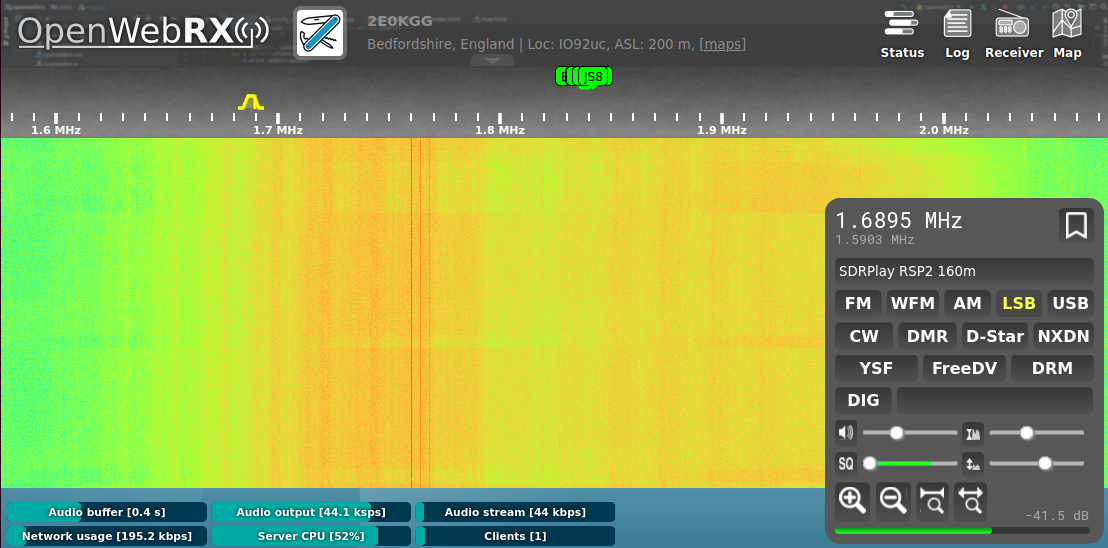I am a licensed radio amateur.
Wikipedia describes Amateur Radio as:
Amateur radio, also known as ham radio, is the use of radio frequency spectrum for purposes of non-commercial exchange of messages, wireless experimentation, self-training, private recreation, radiosport, contesting, and emergency communication. The term “amateur” is used to specify “a duly authorised person interested in radioelectric practice with a purely personal aim and without pecuniary interest;”
There’s an incredible range to the hobby:
some like to simply talk to others nearby,
some like to see how many different places they can communicate with,
some enjoy travelling to different islands or mountains to contact others,
some are interested in electronics and building radios,
and some like to communicate by bouncing signals off the moon.
I’m less interested in the human communication aspect,
and more in the technical,
particularly in exploring the “hidden” world of signals around us all.
Actually, given I do very little transmission and instead focus primarily on what I can receive,
I make relatively poor use of the permissions my license grants me!

